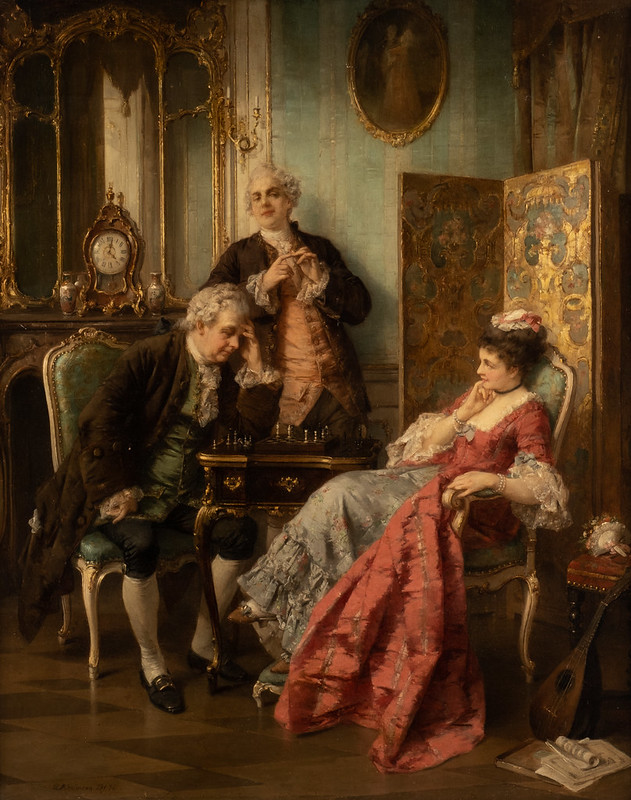A long-awaited exhibition about Max Stern, a prominent Jewish art dealer victimized by the Nazi regime who rebuilt his life in Montreal, will open in his native Dusseldorf this fall.
But Stern estate heirs and Canadian scholars of his legacy want nothing to do with the exhibition, which will run from Sept. 1 to Jan. 30 at the city-owned Stadtmuseum. The title is Deprived of Rights and Property: The Art Dealer Max Stern.
The Max Stern Art Restitution Project, created by the estate in 2002 and based at Concordia University, refused to assist because of ill feeling over Dusseldorf’s cancellation of an earlier planned exhibition of which the project was a key organizer.
Director Clarence Epstein said the project is not convinced this new iteration will forthrightly address the ongoing difficulty of restituting Nazi-looted art in Germany, often in public institutions.
The project also supports the principal Canadian scholars who worked on the aborted exhibition—Concordia art historian Catherine MacKenzie and archivist Philip Dombowsky of the National Gallery of Canada, which houses the Stern documents—whose expertise was not given due respect.
“They (Dusseldorf officials) took everything we did and put it aside,” said Epstein.
Stern, who died in 1987, was the owner for decades of the landmark Dominion Gallery on Sherbrooke Street. Childless, he left the bulk of his estate to Concordia, McGill University, and Hebrew University of Jerusalem.
The earlier exhibition Max Stern: From Dusseldorf to Montreal was abruptly cancelled in November 2017 by then Mayor Thomas Geisel three months before it was to open, also at the Stadtmuseum. Three years in development, the exhibition was then to tour the Haifa Museum of Art in Israel and Montreal’s McCord Museum.
Geisel alluded to current contentious claims on art owned by Stern held in Dusseldorf and the need for broader, international research into what happened to Stern, who inherited the Galerie Stern in Dusseldorf, founded by his father in 1913.
Forced out of the art business under the Nuremberg laws, Stern in 1937 sold under duress and below value the remaining 200 paintings in his inventory through the Nazi-approved Lempertz auction house in Cologne, still in existence.
Facing widespread criticism, including from World Jewish Congress president Ronald Lauder, Geisel back-pedalled, but insisted the exhibition be reconceived and include less Canadian direction.
Geisel, a Social Democrat, was defeated last fall, and new mayor Stephan Keller, a member of Germany’s ruling Christian Democrats, is taking a more conciliatory approach.
“The history of Max Stern and the Galerie Stern are part of Dusseldorf’s city history, which deserves to be commemorated,” Keller said at a July 12 press conference. “Max Stern was a highly respected citizen and an important art dealer in Dusseldorf who became a victim of Nazi terror. To dedicate an exhibition to him and to relate his story in Dusseldorf is of major significance. Indeed, it is part of our culture of remembrance, which we keenly keep alive in Dusseldorf.”
Next spring a monument is to be installed commemorating the Stern family on Konigsallee, the street where the gallery was located.
The exhibition curator is art historian Dieter Vorsteher, 71, whom the Stern project has reservations about on account of his resistance to restitution in the past, Epstein said.
Vorsteher said the exhibition is largely based on Stern’s own accounts, much of it previously unpublished, found in his archives at the National Gallery, where Vorsteher conducted on-site research. He said the exhibition will deal with the search for Stern art to this day and investigations into the provenance of selected works, incorporating information presented at a symposium of 150 international scholars Dusseldorf hosted in February 2019.
The Stern project declined to lend any of the two dozen works it has recovered to the exhibition, said Epstein, including the painting on long-term loan that already hangs in the Stadtmuseum. The recovery of the 19th-century Self-Portrait of Wilhelm Schadow from the Stadtmuseum after a five-year battle set in motion the exhibition ideain 2014. (Geisel was elected later that year.)
Vorsteher indicated the show will not shy away from the simmering controversy, and will “address the rejection of the original exhibition and reaction to this in the national and international press.”
The July 12 press release refers to the rift with the erstwhile Canadian partners. “In recent years, contact was sought on several occasions regarding a renewal and resumption of the co-operation. However, the aforementioned co-operation partners maintained the refusal.”
While Epstein is adamant about any change for now, he is not closing the door forever. He has spoken to Keller and is “open to future discussions… We have every reason to be optimistic. He knows the file and is very pro-active about making amendments.”
The Stern art work most recently restituted—in March—has a Dusseldorf connection. The return of the 19th-century A Difficult Move by Otto Erdmann was facilitated by the city’s Hargesheimer Auction House.







